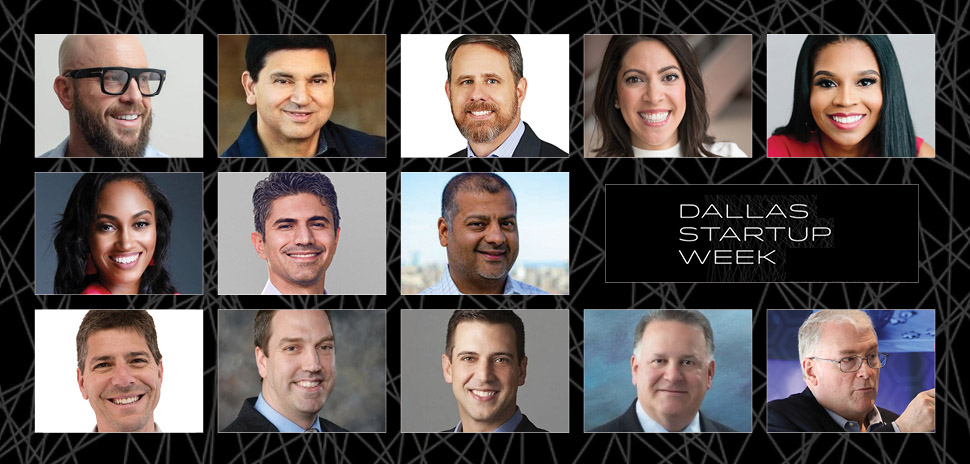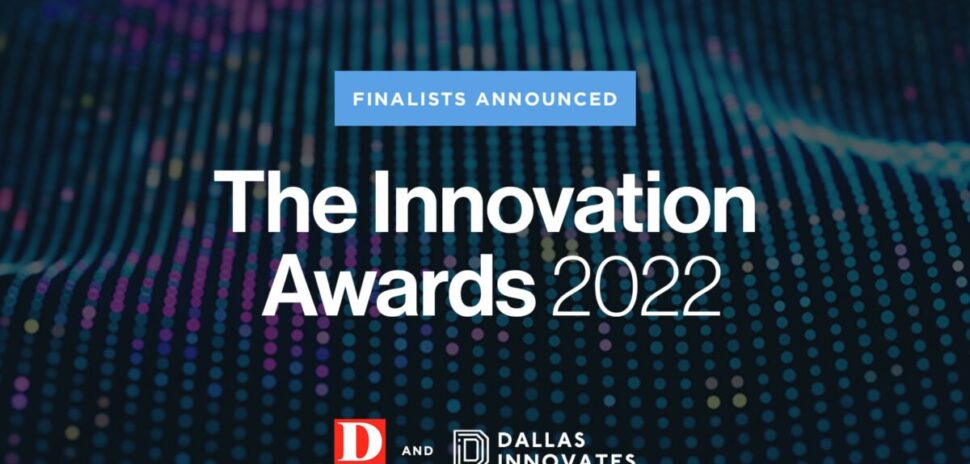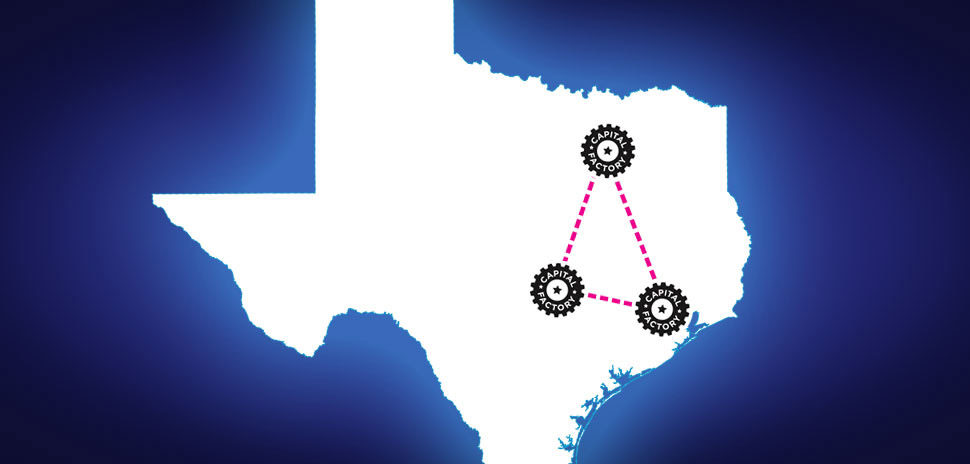Business looks markedly different this year with the onslaught of the COVID-19 pandemic. Founders everywhere have started on the road to recovery—many however, are still struggling with where to even begin.
According to The DEC Network, Dallas’ conductor for all things entrepreneurial, a huge benefit can come from partnering with a corporation.
To assist entrepreneurs in navigating how they can work with large, global companies, The DEC’s Dallas Startup Week dedicates an entire day to corporate startup innovation. As Sanjiv Yajnik, the president of Financial Services at Capital One, says, “entrepreneurs will be the ones getting us through these times, especially in Dallas.” And one way they can do so is working with corporations.
Powered by Capital One, the Corporate Innovation Summit tackled everything from how to raise capital, company culture, connecting with corporate VCs, and coming back from COVID.
Yajnik kicked off the event with a raucous, rallying cry for innovation from all types of companies. He thinks small businesses, civic leaders, and corporate allies need to collaborate to make the Dallas-Fort Worth region even more vibrant.
Speakers for the day-long summit included: Hesam Hosseini, CEO of Match and Match Affinity; Jewel Burks Solomon, head of Google for Startups in the United States, Jim Adler, managing director and board member of Toyota AI Ventures; and Stephen Bohanon, the founder of Alkami.
“Finding the right mix of resources is critical to the prosperity of a startup,” Burks Solomon says. “Founders and CEOs have to be willing to consider partnerships with corporations and take advantage of the resources they are offering. It can be the difference between becoming a success story and going out of business.”
Dallas Innovates (virtually) attended this year’s summit—last year held at Capital One’s Plano campus—and rounded up a few highlights and quotable moments from sessions throughout the day.
From Startup to Rockstar
The founders of two of North Texas’ fastest-growing tech companies, Stephen Bohanon, founder of Alkami Technology, and Rex Kurzius, founder of Asset Panda, discussed their individual entrepreneurial journeys in this fireside chat. They honed in on what it takes to launch, run, and grow a technology company—and how to continue to thrive once you’ve already seen success.
It was moderated by Demetrius Seaforth, market manager at Capital One.
Rex Kurzius, Asset Panda
Kurzius is a serial entrepreneur whose vision has resulted in tremendous growth and recognition for his companies.
Currently, he’s the founder and president of Frisco-based Asset Panda, a highly configurable, SaaS-based asset tracking and management platform. Founded in 2012, the flexible platform is designed to help the world work smarter, with flexibility in mind.
During the DSW20 session, Kurzius explained to Seaforth that he was raised on entrepreneurship. He always wanted to have his own company growing up, he just wasn’t sure what kind. That didn’t matter, though—to Kurzius, being a founder was about taking the leap.
“It’s hard, and you have to take a lot of risks,” he said. “But you have to find something you’re willing to work hard for. Entrepreneurship, to me, ultimately meant freedom.”
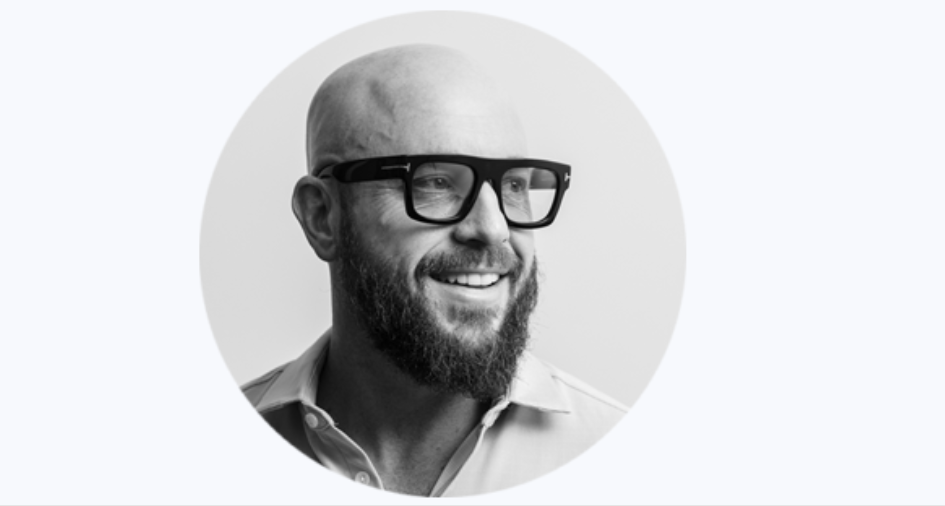
Rex Kurzius [Photo: Courtesy]
The biggest lesson Kurzius learned once becoming an entrepreneur was to not give away too much of your startup too soon. When launching his first company, he raised $300,000, but had to spend a lot of time and extra money (way more than $300K) buying out investors once he gained traction.
That’s why he’s the 100 percent owner of Asset Panda. Kurzius is a firm believer in bootstrapping, and has done so with every one of his companies since.
“The cost of building companies seems to be less and less over time This is the golden age of entrepreneurship,” he said. “If you combine a good service with really good people at the best interest of your clients, people seem to notice really quickly. My companies have been high growth, Asset Panda included, and that’s thanks to my team. It starts at the core.”
That people-first mindset runs through the lifeblood of Kurzius’ companies. Though his team went entirely remote during COVID-19, his company culture hasn’t wavered—and he can’t emphasize how important that is.
“The difference between companies that are successful over time and aren’t is culture. It’s getting the right people, celebrating their individuality, challenging them, motivating them, communicating clearly, and giving them a strong voice for the company,” he said. “It’s built over time. You don’t just start out with great culture. You have to make your environment a place nobody wants to leave.”
Stephen Bohanon, Alkami Technology
As the co-founder of Plano-based Alkami Technology, Bohanon is leading a new wave of fintech.
The fast-growing company is a provider of cloud-based digital banking solutions to U.S. credit unions and banks. It was founded in 2009, and has since become a 450 employee operation that serves upwards of 140 financial institutions and more than 7 million users. Bohanon today oversees product direction, strategy, and sales efforts.
About 13 years ago, he relocated to Dallas from Oklahoma City, and credits that move as a driving factor for helping to grow Alkami. The tech industry itself, access to people, and central location are hard to beat.
“Being in the North Plano area is almost like an endless supply of talent,” he told Seaforth during the session. “There’s the tax climate, location, and access to resources. We wouldn’t have been able to do this somewhere else. It would’ve been a lot harder.”
To aspiring entrepreneurs, the first thing Bohanon advises doing is seeing if there’s a market need for what the company would offer. From there, make sure a solid product or service is in place—that’s the first check mark to eventually achieve growth.
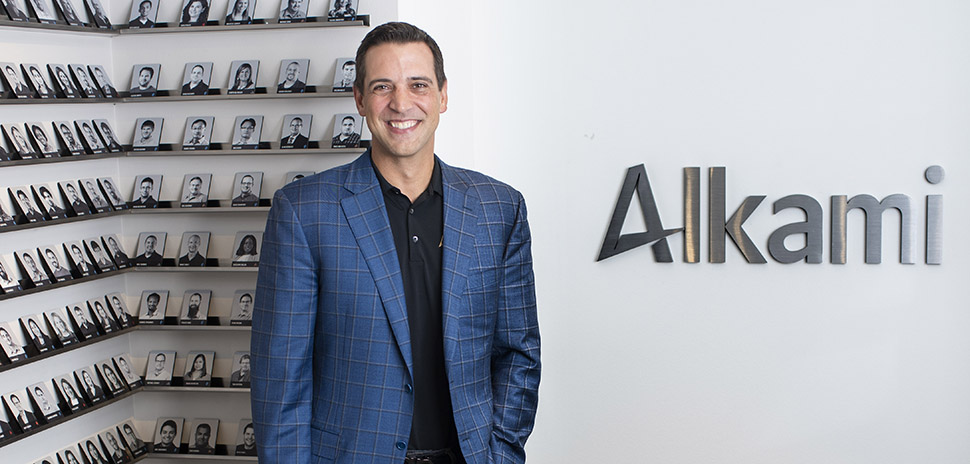
Stephen Bohanon [Photo: Michael Samples]
“Alkami happened organically,” he said. “There was a solid need in the industry for what we were going to do. In financial services, I happened to be in the position to identify the problem and need and capitalize on that.”
Much like Kurzius, company culture is of high value at Alkami. Dallas Innovates has even wrote about it and given the fintech an award.
One of the biggest mistakes Bohanon made early on is not having a defined mission statement and hiring people that weren’t a fit with the culture. Alkami has continusouly grown its staff over the years, and there slowly became a problem with dilution.
So the team brought in an expert—now the company’s “chief culture office”—to ensure Alkami had a formal, institutionalized culture.
“We made sure it was something that represented us rather than just sounded good on our website. It has to be authentic,” he said. “Then, throughout our process of hiring, we started filtering for culture fits. Every person has to go through culture training. We challenge our culture and see if we really exhibit these traits—we look at it almost like a business objective within our company.”
Staying True to Startup Culture Past Major Growth
Hesam Hosseini, the CEO of Match, virtually sat down with Danielle Abril, a tech reporter at Fortune Magazine to talk about dating in pandemic, continuously innovating, and what the future might look like for the matchmaking pioneer.
In his role, Hosseini leads more than 30 brands under Match Affinity, which cater to hyper-specific communities like BLK and Chispa. He first joined Match Group in 2008, but has since served in a variety of roles throughout the organization, taking the helm at Match a few years ago.
Last year, he led an entire app overhaul of what is known to be the very first online dating service. Hosseini is hyperfocused on being with users for every step of a relationship, starting with the first date, and is doing so with past initiatives and future.
Here’s a snippet of his conversation with Abril. All of Hosseini’s answers were edited for brevity and clarity.
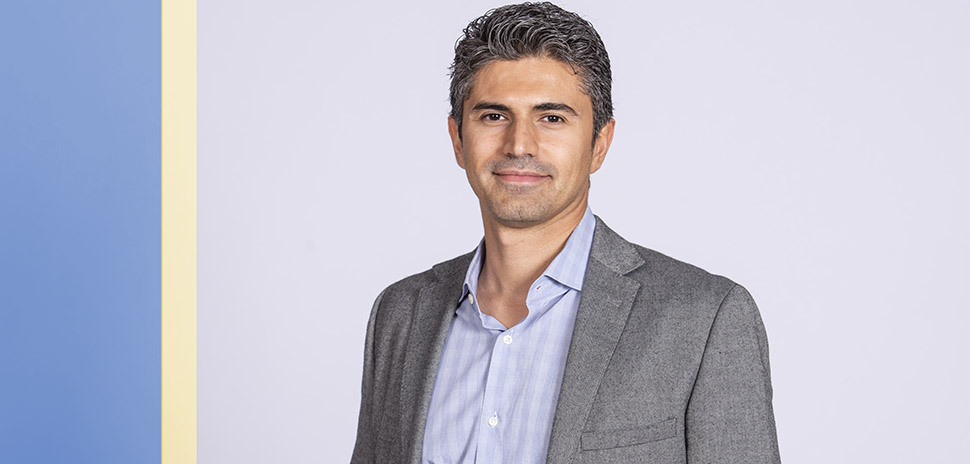
Hesam Hosseini [Photo: Michael Samples]
On the COVID-19 effect
Match has had several record months—dating is alive and well. The need for our service is still there, it just looks a little bit different. There has been some fatigue with dating and dating apps. There’s been a shift to the want for more meaningful connections. Something that took a turn is video dating.
We were the first dating app to launch a video feature after COVID hit. Prior to the pandemic, interest was small, which is why we didn’t invest in the feature. But COVID-19 served as a catalyst for video dating to become more common. The stigma kind of disappeared.
You can get to know the person and figure out if it’s worth stepping out for. In some ways, it can be less awkward than a date. We always thought it had value, but users didn’t want it. That’s obviously changed with the shutdown.
On the events of 2020
One thing we’ve seen is that the pandemic alone has forced some ‘big talk’ on the first date. People are talking about major topics early on rather than focusing on small talk.
The number one question we get is when users should be talking about politics while dating. In the past, we encouraged users to just get to know someone, and then decide. This year, we’ll see how it plays out being an election year.
The topic of racial injustice is super important to us. I’m an immigrant myself: I moved to North America when I was 12 and grew up in a primarily minority area. I have a different worldview when it comes to race. So this is something I take seriously both personally and with what we do at Match.
We took action—we had a lot of tough but necessary conversations about how we could do better. It wasn’t a business decision. We just wanted to make sure we were doing the right thing.
On the parallels of startups and corporations
A lot of times, people thinks startups and corporates are really different. But what’s actually happened is in the corporate world, some of the principles that startups operate on are really valuable. You’re working on scarce resources at a startup, you have to be scrappy and lean. I see the world as a lot more connected.
I’m a big believer in the startup ecosystem. We have some great talent here in Dallas, and there’s a lot of values we live by. We’re constantly innovating and launching new brands. You have to disrupt yourself. That is in our DNA.
On what’s next
Video dating is here to stay. It’s a must-have tool during the pandemic, and I think users are staying interested in the long run. We’ll be investing in our offering there.
Singles are entering a phase of wanting to meet people cautiously. We’re working on a few things that can help facilitate that and find the best way to stay safe during this time while meeting up. (Like are you going to wear a mask, go to a restaurant, etc.)
We have to stay nimble and continue adapting our products with the needs of singles month by month. Match is headquartered here in Dallas and a lot of the cutting edge innovation is happening at our headquarters. The culture we have thrives on entrepreneurship and thinking like a startup.
State of Corporate Venture
To see how various corporations work with and invest in startups, experts from of the largest in the world gathered to discuss: Aman Sharma, a partner at Capital One Ventures; Marisa Bertha, the senior director of New Business Development and 7-Ventures, 7-Eleven; and Jim Adler, managing director and board member, Toyota AI Ventures.
They touched on ways to engage with them, what kinds of companies they look to invest in, and how investing has changed during a tumultuous 2020. The panel was moderated by Duane Dankesreiter, the senior vice president of Research and Innovation at the Dallas Regional Chamber.
Here’s a little bit of what they had to say. All answers were edited for brevity and clarity.
How do you determine staying in stealth or going public with your investments?
Sharma: We’re very public about our investments. We have a website that lists them all. The decision around that has been to encourage the startup ecosystem. We’re fairly vocal about challenges we’re facing, and when you do that, you attract the right solutions.
Adler: We have a sort of a ‘VC or bust’ structure. Venture capital has done a good job for decades finding the best tech and business models. So we want to be public to attract the kinds of companies that are best to breed.
Talk to me about what it looks like to work with startups.
Adler: We want them to be financially successful. The most important thing of an early stage startup is survival. We don’t care if they work with competitors. The startups have to survive. They don’t need a corporate venture group holding them back.
Sharma: You really have to walk a fine line between not crushing the innovation that’s happening and showing up as a large corporate and not acting like you’re working with a large corporate. Startups can be delicate. We try to engage intent—it could be near or long term.
Bertha: I’m on the emerging brand side of my team, and every year we invite emerging food and beverage companies to 7-Eleven headquarters so they can know what it takes to sell in our stores. They get to meet our buyers, franchisees, and the people they would interact with.
We spend a lot of time on the courtship and getting to know a startup. Once we’re investors, it’s a marriage. If we invest early, we want to continue to invest in that company, permitting the commercial metrics are being achieved.
What advice do you have for startups wanting to work with the banking industry?
Sharma: The sales cycle with banks and large financial services companies are fairly long. That’s the biggest challenge. If you’re an early stage company and you have something that might be useful, we act as a ‘gatekeeper’ for those companies.
One of the things we’re good at is being able to deliver a binary answer pretty quickly on whether something is of interest. We as a team are able to make sure startups aren’t going through unnecessary cycles. If you’ve worked with another financial services company in the past, it becomes much easier with the experience.
How did COVID-19 affect your company?
Adler: There’s a bunch of change in the market. Our behavior is changing, and it’s hitting a lot of different areas. From our perspective, we’ve made a lot of investments in various markets.
On the venture side, some VCs would never make an investment unless they’ve met the startup face to face. And I think that’s changing. We’ve made a couple deals since COVID hit and I’ve never met the founding team.
We’re also realizing there’s a lot of value outside of Silicon Valley. And I think that’s a really good thing. Especially in places like Dallas, where there’s a lot of talent and tenacity. We want to tap into that.
What is your company’s approach to investing in minority and women-owned companies?
Bertha: Well, I’m a woman and a minority.
But all jokes aside, we care a lot about investing in diversity.
7-Eleven serves 8 million customers daily in our 10,000 stores, and we’re really good at our core customer. But part of our investment thesis is how to find products that attract the changing view of the customer.
We make sure to have diversification in terms of gender and the various demographics coming in our door.
![]()
Get on the list.
Dallas Innovates, every day.
Sign up to keep your eye on what’s new and next in Dallas-Fort Worth, every day.

